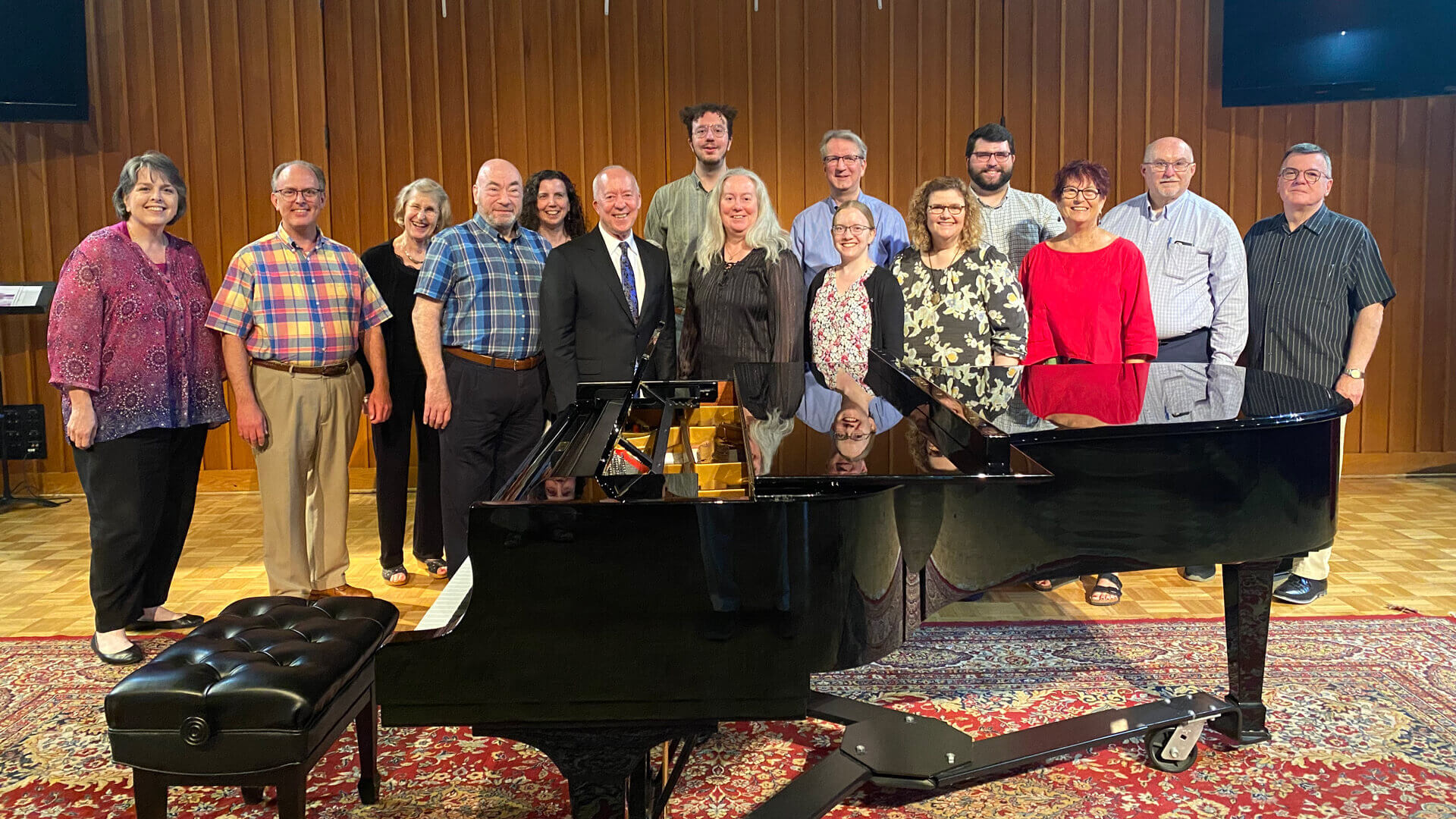
Church Music Institute
THE CHURCH CHOIR
Week One: June 15–20, 2025 | Emphasis on Adult Choirs with Clinician Jennaya Robison
Week Two: June 22–27, 2025 | Emphasis on Children and Youth Choirs with Clinician Mark Burrows
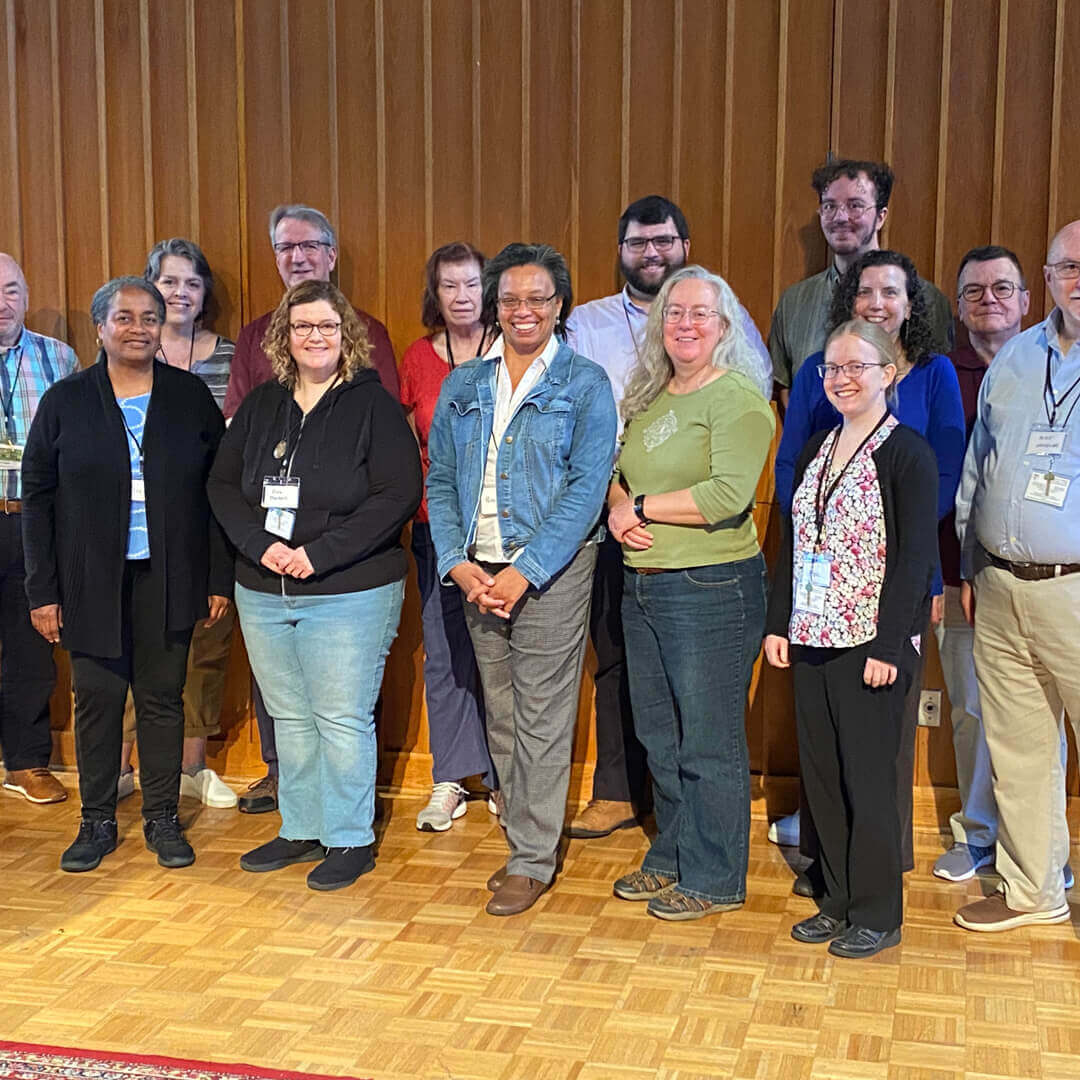
About CMI
The Church Music Institute (CMI) at Shenandoah University (SU) goes back many decades. Hundreds of church musicians from a wide variety of denominations have participated in these summer sessions. Teachers have included SU faculty plus outstanding guest clinicians. CMI is back in its full-two-week format, and credits can once again be earned toward a Church Music Certificate at either the graduate or undergraduate level. This year’s institute celebrates the past, present and future of the church choir, as well as other church music topics, and features special sessions with several guest clinicians.
The Church Choir
Week One: June 15–20, 2025
Emphasis on Adult Choirs with Clinician Jennaya Robison
Week Two: June 22–27, 2025
Emphasis on Children and Youth Choirs with Clinician Mark Burrows
Clinicians
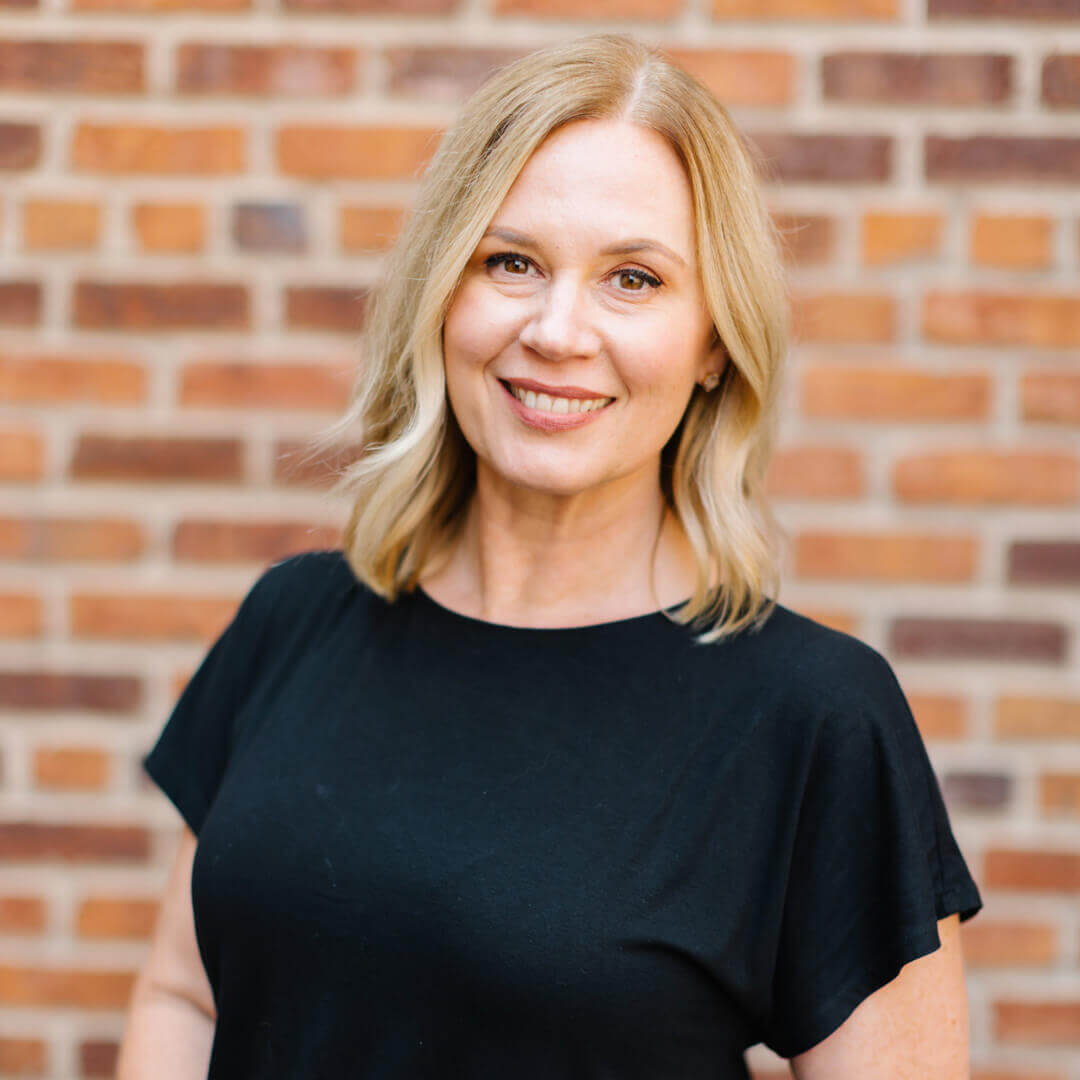
Jennaya Robison
Week 1: June 15–20, 2025
Jennaya Robison is the artistic director of the National Lutheran Choir and is a highly accomplished conductor, educator, and vocalist. She holds a Doctor of Musical Arts in choral conducting from the University of Arizona, a Master of Music in conducting and voice from the University of New Mexico, and an undergraduate degree in music (education and voice) from Luther College. Her extensive work in the field of choral conducting includes serving as the Raymond R. Neevel/Missouri Associate Professor and Director of Choral Studies at the University of Missouri-Kansas City Conservatory until 2023, Associate Professor of Choral Music at Luther College from 2013 to 2020, and founding Scottsdale Musical Arts in 2009.
In demand as a clinician and guest speaker, Robison frequently appears at regional and national choral conferences and seminars; regularly leads All State and honor choirs, workshops, and festivals; and has taught courses in choral singing and global connection in the United States, Namibia, South Africa, Germany, and an upcoming festival in Italy (2024). She is the editor of the National Lutheran Choir Series with MorningStar Music Publishers as well as the Jennaya Robison Series with Pavane Publishing, and she is an active arranger of choral music. Robison has served as soloist and chorister with the Dale Warland Singers, True Concord Voices, Spire Chamber Ensemble, and the Tucson Symphony among many other ensembles. She is the national chair of Music in Worship for the American Choral Directors Association, a member of Chorus America, and has held leadership positions at Lutheran churches in Arizona, Missouri, Iowa, and Minnesota.

Mark Burrows
Week 2: June 22–27, 2025
Mark Burrows is a composer, conductor, and educator whose music is published by many major houses. Mark’s works are featured on numerous state and festival lists, and he receives multiple commissions each year for groups ranging from children’s choirs to adult ensembles to intergenerational festival choirs. As a conductor and educator, Mark serves as a guest clinician with honor and festival choirs throughout the country. He also leads workshops and reading sessions at several state and national conferences each year. Mark received his undergraduate degree in music education from Southern Methodist University and his graduate degree in conducting from Texas Christian University. He lives in Fort Worth, Texas with his wife, Nina, and their daughters, Emma and Grace.
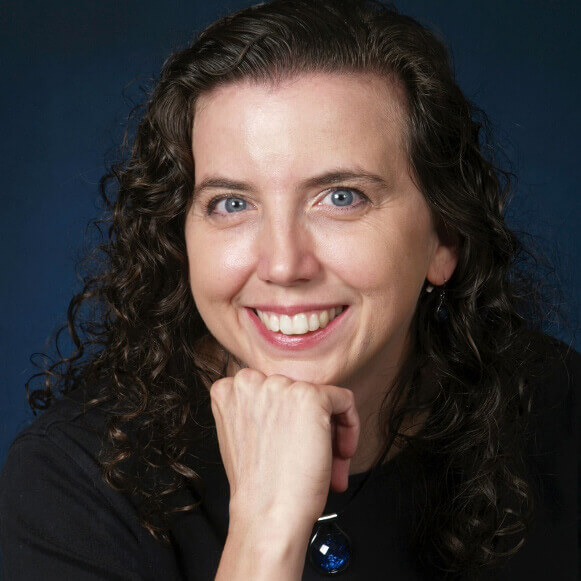
Dr. Heather Ankerbrand
Monday to Thursday Each Week, 10:45 a.m. to 11:45 a.m.
Heather Ankerbrand will lead sessions on handbell technique, repertoire and their use in worship, and will give opportunities for attendees to conduct. She will also lead a session on congregational psalmody. Heather earned a Doctor of Musical Arts in Performance – Organ from Shenandoah Conservatory, is director of music and organist at Front Royal Presbyterian Church, and has been active in the Winchester Chapter of the American Guild of Organists.
[tab title=”Wayne L. Wold”]
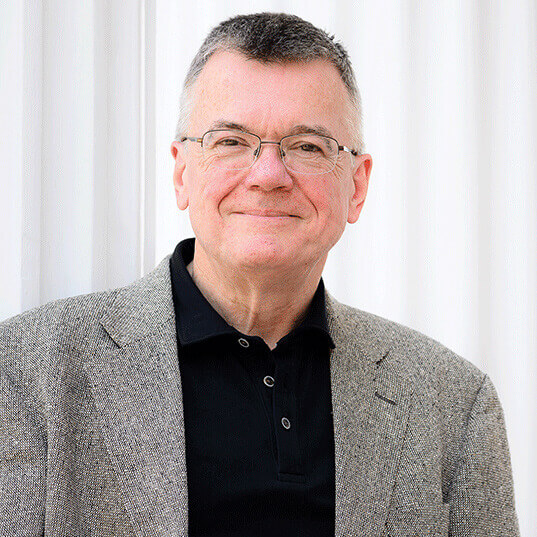
Dr. Wayne L. Wold
Various Sessions
Wayne L. Wold is director of the Church Music Institute at Shenandoah Conservatory and serves as an adjunct associate professor of music at Shenandoah University; director of music at First Lutheran Church in Ellicott City, Maryland; professor emeritus at Hood College in Frederick, Maryland; and is an active composer, author, performer and clinician.
Week 1 Schedule
Week 1 Schedule | Sunday, June 15, 2025
| Time | Event | Location |
|---|---|---|
| 3:30 p.m. | Campus Housing Check-in | University Inn Lobby |
| 5:30 p.m. | Introductions & Dinner | Allen Dining Hall |
| 7 p.m. | Opening Worship | Goodson Chapel – Recital Hall |
Week 1 Schedule | Monday, June 16 – Thursday, June 19, 2025
| Time | Event | Location |
|---|---|---|
| 7:30 a.m. | Breakfast | Allen Dining Hall |
| 8:30 a.m. | Morning Workshop with Discussion Time | Goodson Chapel – Recital Hall |
| 9:15 a.m. | Sessions with Jennaya Robison | Goodson Chapel – Recital Hall |
| 10:30 a.m. | Break with Refreshments & Music Store Browsing | |
| 10:45 a.m. | Handbell Rehearsal with Heather Ankerbrand | Goodson Chapel – Recital Hall |
| 12 p.m. | Lunch & Prep Times for Worship Planners/Leaders | Allen Dining Hall |
| 1:15 p.m. | Sessions with Jennaya Robison | Goodson Chapel – Recital Hall |
| 2:30 p.m. | Break | |
| 3 p.m. | Breakout Sessions/Discussions Philosophy of Church Music and Other Topics | Goodson Chapel – Recital Hall |
| 4 p.m. | Monday: Worship planning groups OR private sessions with Jennaya Robison Tuesday: Workshop with Stephen Holmes of the Maryland State Boy Choir Wednesday: Worship planning groups OR private sessions with Jennaya Robison Thursday: Worship planning groups OR private sessions with Jennaya Robison | Various Locations |
| 5:30 p.m. | Dinner & Break | Allen Dining Hall |
| 6:40 p.m. | Travel to Off-campus Location | |
| 7 p.m. | Evening Worship/Concert Monday: TBA Tuesday: Concert and Choral Compline by the Maryland State Boy Choir Wednesday: “Eve of Juneteenth” Commemoration Thursday: Organ Recital by SU Student Anna Smith and Choral Evensong in Upperville, Virginia | Various Locations |
Week 1 Schedule | Friday, June 20, 2025
| Time | Event | Location |
|---|---|---|
| 7:30 a.m. | Breakfast | Allen Dining Hall |
| 9 a.m. | Wrap-up Session with Guest Clinicians & Others | |
| 10 a.m. | Music Store Check-out & Worship Prep | |
| 10:30 a.m. | Closing Worship with Holy Communion SU Chaplain Rev. DeLyn Celec, Preaching and Presiding | Goodson Chapel – Recital Hall |
| 12 p.m. | Lunch & Farewell | Allen Dining Hall |
Week 2 Schedule
Week 2 Schedule | Sunday, June 22, 2025
| Time | Event | Location |
|---|---|---|
| 3:30 p.m. | Campus Housing Check-in | University Inn Lobby |
| 5:30 p.m. | Introductions & Dinner | Allen Dining Hall |
| 7 p.m. | Opening Worship | AlGoodson Chapel – Recital Hall |
Week 2 Schedule | Monday, June 23 – Thursday, June 26, 2025
| Time | Event | Location |
|---|---|---|
| 7:30 a.m. | Breakfast | Allen Dining Hall |
| 8:30 a.m. | Morning Workshop with Discussion Time | Goodson Chapel – Recital Hall |
| 9:15 a.m. | Sessions with Mark Burrows | Goodson Chapel – Recital Hall |
| 10:30 a.m. | Break with Refreshments & Music Store Browsing | |
| 10:45 a.m. | Handbell Rehearsal with Heather Ankerbrand | Goodson Chapel – Recital Hall |
| 12 p.m. | Lunch & Prep Times for Worship Planners/Leaders | Allen Dining Hall |
| 1:15 p.m. | Sessions with Mark Burrows | Goodson Chapel – Recital Hall |
| 2:30 p.m. | Break | |
| 3 p.m. | Breakout Sessions/Discussions Philosophy of Church Music and Other Topics | Goodson Chapel – Recital Hall |
| 4 p.m. | Monday: Worship planning groups OR private sessions with Mark Burrows Tuesday: TBA Wednesday: Worship planning groups OR private sessions with Mark Burrows Thursday: Worship planning groups OR private sessions with Mark Burrows | Various Locations |
| 5:30 p.m. | Dinner & Break | Allen Dining Hall |
| 6:40 p.m. | Travel to Off-campus Location | |
| 7 p.m. | Evening Worship/Concert Monday: TBA Tuesday: Presentation on SU’s Historic Roots in Church Music by Jonathan Noyales Wednesday: Presentation on Running a Community-based Children’s Chorus by Patty Austin Thursday: TBA | Various Locations |
Week 2 Schedule | Friday, June 27, 2025
| Time | Event | Location |
|---|---|---|
| 7:30 a.m. | Breakfast | Allen Dining Hall |
| 9 a.m. | Wrap-up Session with Guest Clinicians & Others | |
| 10 a.m. | Music Store Check-out & Worship Prep | |
| 10:30 a.m. | Closing Worship with Holy Communion SU Chaplain Rev. DeLyn Celec, Preaching and Presiding | Goodson Chapel – Recital Hall |
| 12 p.m. | Lunch & Farewell | Allen Dining Hall |
Schedule is subject to change.
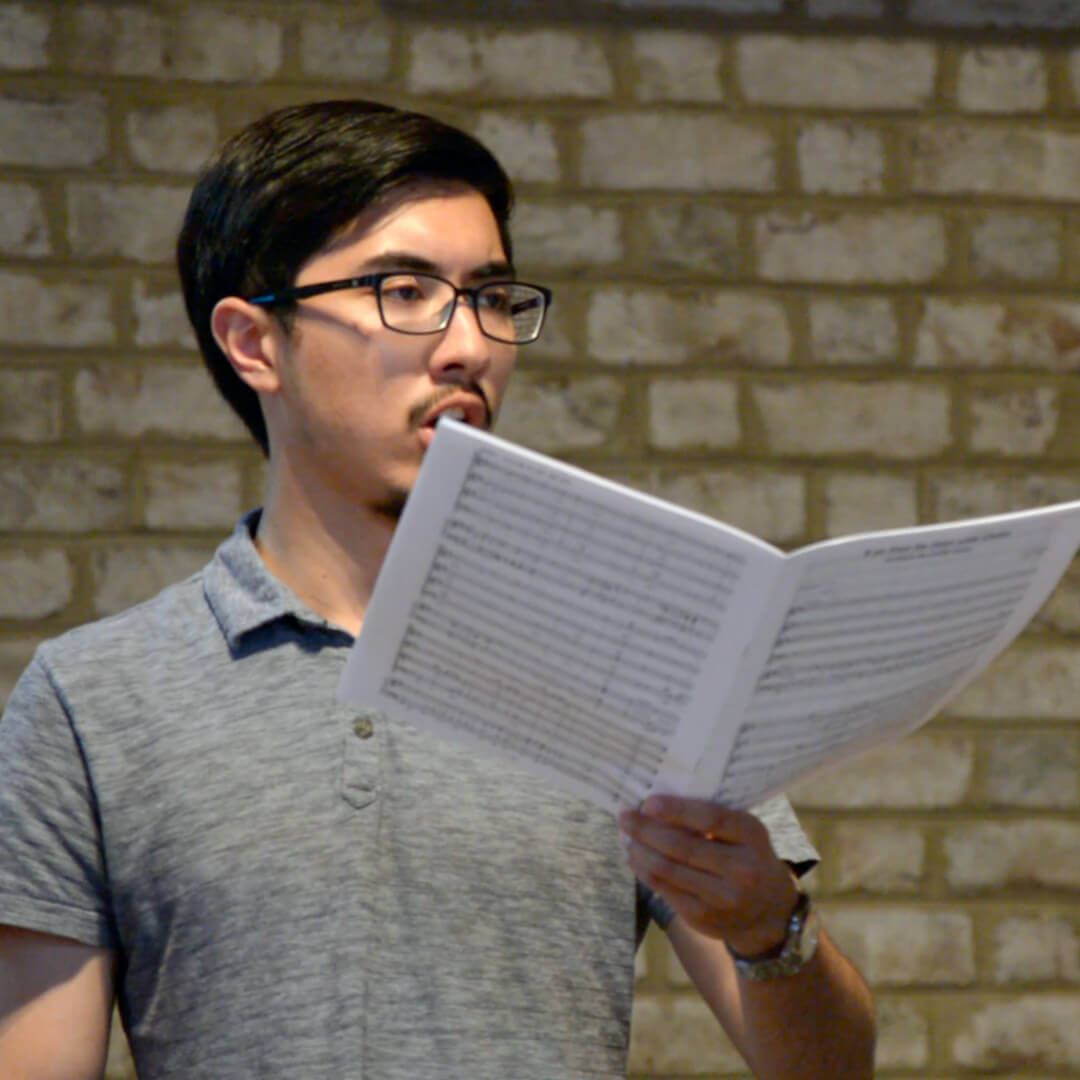
Registration Information
Visiting students with a valid SSN can enroll and pay online via Instant Enrollment (SSN is required). Shenandoah University students in a current degree program can enroll via Hornet Hub or by enrolling and paying via Instant Enrollment.*
*Students receiving financial aid must enroll via Hornet Hub. Students registering via Hornet Hub follow the scheduled due dates, drop dates, etc. All balances must be paid prior to the course start date.
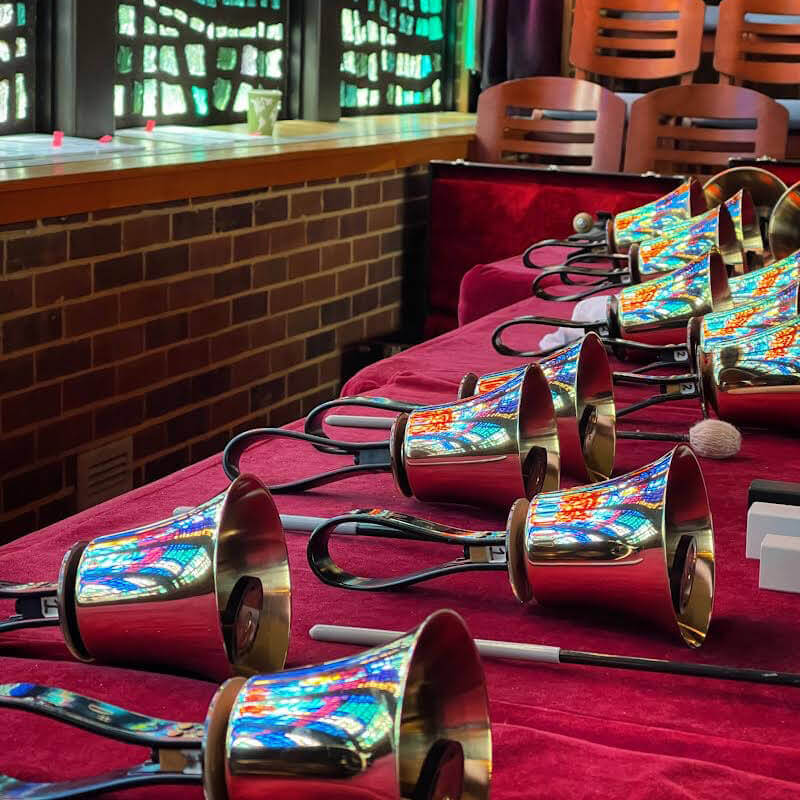
Tuition
Credit
The rate is $620 per week for participants seeking to earn credit. This rate applies for both undergraduate and graduate level participants.
Audit
The rate is $492 per week for participants seeking to audit. This rate applies for both undergraduate and graduate level participants.
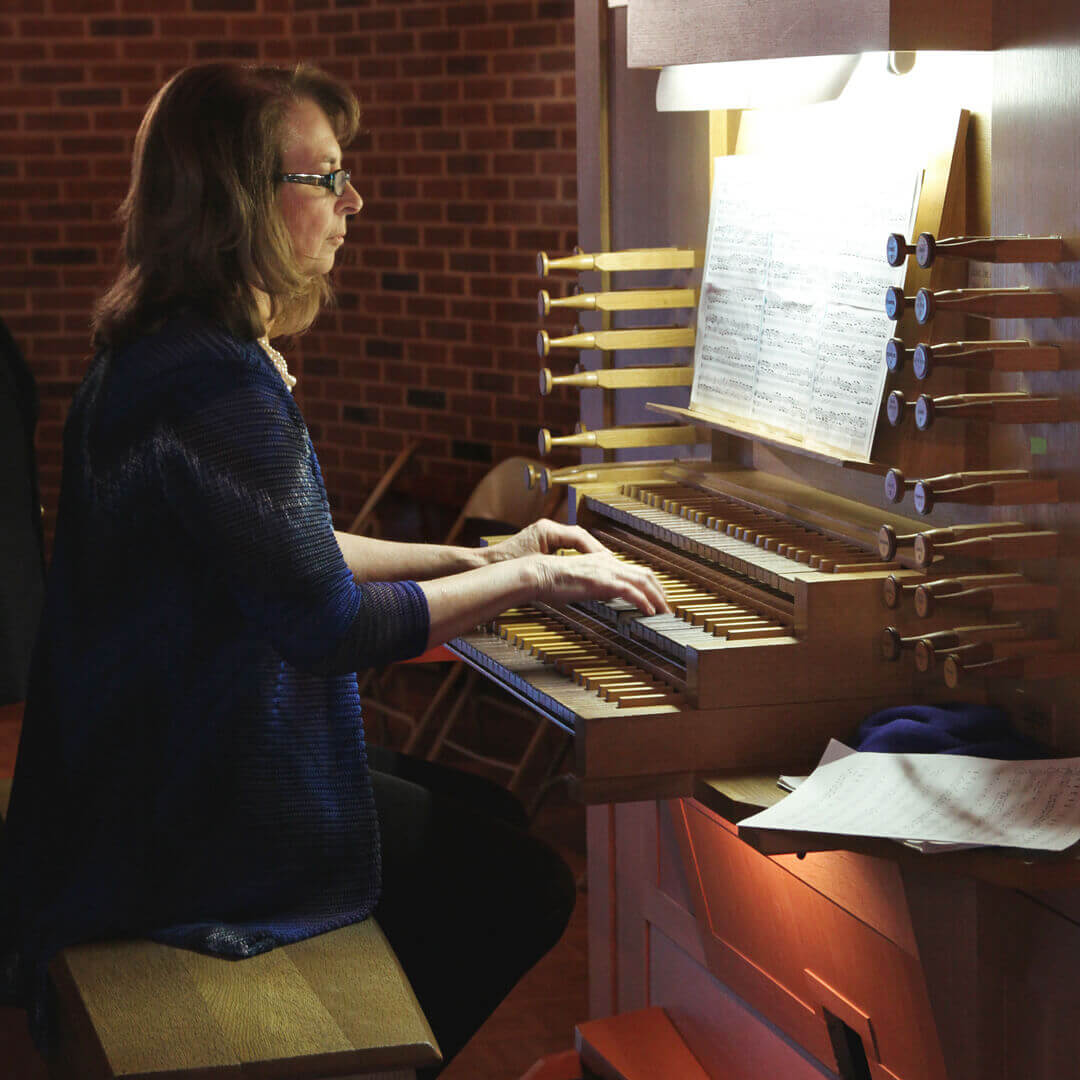
Housing
Off-campus Housing
The Winchester area is home to numerous places of comfortable accommodation. Shenandoah University discounts are available at some area hotels.
On-campus Housing
On-campus housing is available for participants at the rate of $95 per night and includes meals. Note: If you are a current Shenandoah University student, contact Dr. Wold if you are seeking on-campus housing during this program for more information on how to have your student account charged.
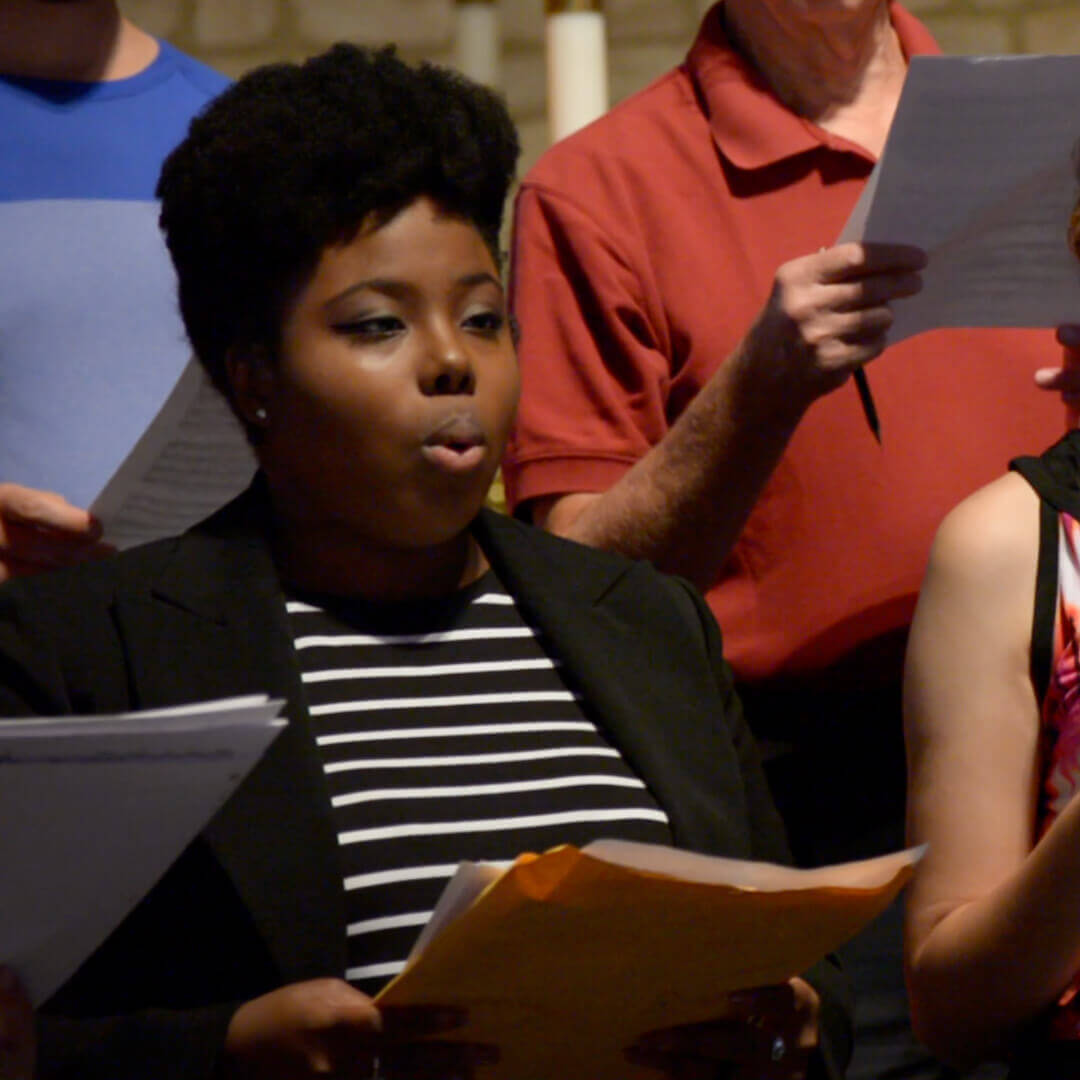
Church Music Certificate
Shenandoah University offers a Church Music Certificate which requires attendance at three consecutive two-week summer sessions of CMI.
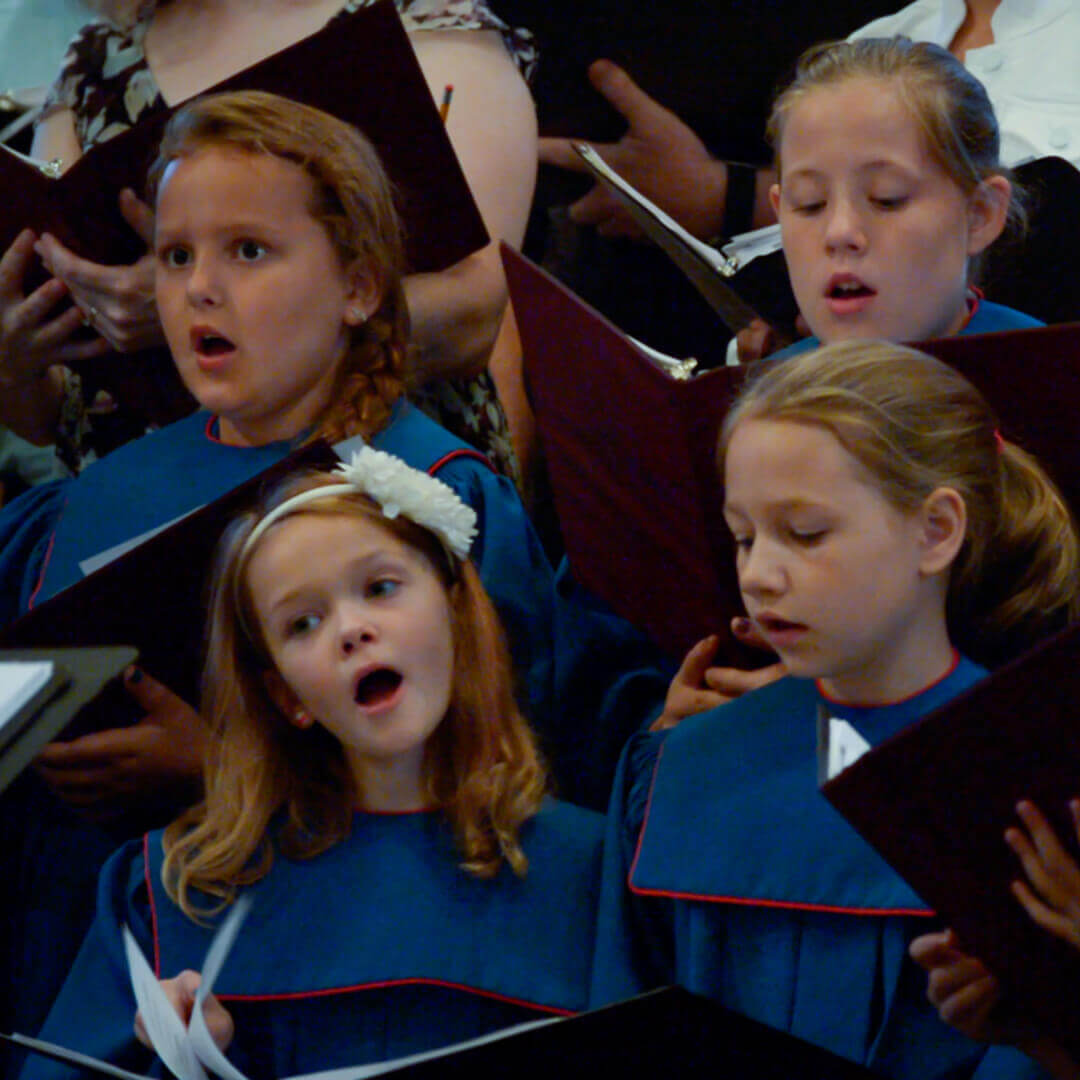
Refund Policy
Church Music Institute participants may cancel their registration up to 7 days prior to the event for an 80% refund. Contact Wayne L. Wold for more information.

Contact Us
Dr. Wayne L. Wold
Church Music Institute Director
Shenandoah Conservatory
cmi@su.edu